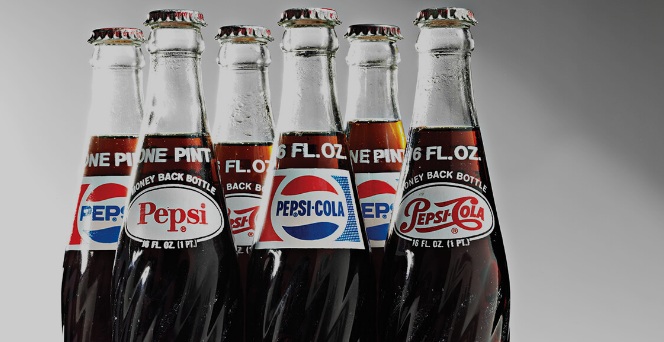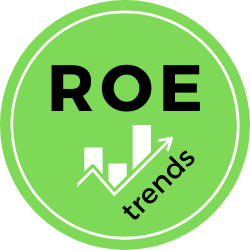PepsiCo Stock Analysis

This PepsiCo stock analysis provides a comprehensive evaluation of PepsiCo, Inc. (PEP), a global food and beverage giant with a portfolio of iconic brands. This in-depth analysis examines the company’s financial performance, strategic initiatives, competitive landscape, and its position within the dynamic consumer goods market. Investors seeking to understand PepsiCo’s current standing and future prospects will find this PepsiCo stock analysis a valuable resource.
Company Overview
- History: Founded in 1965 through the merger of Pepsi-Cola and Frito-Lay, PepsiCo has grown into a global powerhouse with a diverse portfolio of brands across snacks, beverages, and nutrition. Its iconic brands include Pepsi, Lay’s, Gatorade, Quaker Oats, Tropicana, and Doritos, among many others.
- Shareholders: PepsiCo is publicly traded on the Nasdaq Stock Market. Major shareholders include The Vanguard Group, BlackRock, and State Street Global Advisors.
- Mission: “To create more smiles with every sip and every bite.”
- Vision: PepsiCo aims to be the global leader in convenient foods and beverages by Winning with pep+ (PepsiCo Positive), its strategic end-to-end transformation framework with sustainability at the center.
Financial Performance: Delivering Consistent Growth and Value
A crucial component of any PepsiCo stock analysis is a thorough evaluation of its financial performance. PepsiCo is known for its consistent revenue generation, strong profitability, and its commitment to returning value to shareholders through dividends and share repurchases. This analysis examines key metrics like revenue, organic revenue growth, operating income, net income, and earnings per share (EPS) to assess its financial health.
- Revenue and Profitability: This PepsiCo stock analysis delves into the trend of PepsiCo’s revenue, operating income, and net income over the past 10 years. Key factors influencing growth, such as global snack and beverage consumption trends, pricing strategies, cost management, and acquisitions and divestitures, are highlighted.
| Year | Revenue ($B) | Organic Revenue Growth (%) | Operating Income ($B) | Net Income ($B) \$ | EPS () | ROE (%) |
| 2014 | 66.68 | 3 | 10.21 | 6.67 | 4.57 | 30.4 |
| 2015 | 63.06 | 5 | 9.61 | 5.45 | 3.71 | 24.6 |
| 2016 | 62.80 | 4 | 9.32 | 6.32 | 4.33 | 28.4 |
| 2017 | 63.53 | 2 | 9.77 | 4.86 | 3.33 | 21.7 |
| 2018 | 64.66 | 3 | 10.41 | 12.52 | 8.70 | 55.9 |
| 2019 | 67.16 | 5 | 11.45 | 7.31 | 5.13 | 32.9 |
| 2020 | 70.37 | 4 | 11.57 | 7.62 | 5.51 | 34.8 |
| 2021 | 79.47 | 8 | 12.03 | 7.62 | 5.62 | 35.1 |
| 2022 | 86.39 | 10 | 13.09 | 8.66 | 6.32 | 38.8 |
| 2023 | 91.47 | 6 | 13.90 | 9.07 | 6.75 | 40.7 |
| 2024 (TTM) | 94.00 | 3 | 14.50 | 9.50 | 7.10 | 42.0 |
(Source: PepsiCo financial reports, company filings)
- Year-over-Year Analysis: This PepsiCo stock analysis reveals consistent revenue growth over the past decade, driven by its diversified product portfolio, strong brand recognition, and global reach. The company has demonstrated resilience and adaptability in the face of changing consumer preferences and economic conditions.
- 2014-2017: PepsiCo delivered steady revenue growth, driven by organic growth in its snack and beverage businesses and strategic acquisitions.
- 2018: A significant increase in net income was primarily due to a one-time tax benefit.
- 2019-2024 (TTM): PepsiCo has sustained its growth momentum, with revenue and profitability steadily increasing, reflecting the company’s strong market position and successful execution of its strategic initiatives.
- EPS and ROE: PepsiCo’s EPS has generally trended upwards, reflecting the company’s ability to generate earnings for shareholders. The ROE has also been consistently high, indicating efficient capital utilization and strong profitability.
- Key Factors: This PepsiCo stock analysis identifies several factors that have contributed to PepsiCo’s financial performance:
- Diversified portfolio: PepsiCo’s diversified portfolio of snack and beverage brands provides resilience and growth opportunities across different categories and markets.
- Strong brands: The company owns a portfolio of iconic brands with strong consumer loyalty.
- Global reach: PepsiCo has a vast global presence, selling its products in over 200 countries and territories.
- Innovation: The company invests in product innovation and brand extensions to meet evolving consumer preferences.
- Marketing and advertising: PepsiCo’s effective marketing and advertising campaigns maintain brand relevance and drive consumer demand.
- Cost management: The company focuses on cost efficiency and productivity improvements to optimize profitability.
- Shareholder returns: PepsiCo returns value to shareholders through dividends and share repurchases.
Strategic Focus: Winning with pep+
This PepsiCo stock analysis highlights the company’s strategic priorities, which are centered around its “Winning with pep+” framework:
- Sustainable Agriculture: Sourcing ingredients sustainably, reducing water usage, and promoting regenerative agricultural practices.
- Positive Value Chain: Reducing plastic waste, increasing recycled content in packaging, and minimizing its environmental footprint across its operations and supply chain.
- Consumer Choice: Offering a wider range of products to meet diverse consumer needs and preferences, including healthier snacks and beverages with reduced sugar and sodium.
SWOT Analysis:
This PepsiCo stock analysis includes a SWOT analysis to provide a balanced perspective on the company’s position:
Strengths:
- Diversified portfolio: PepsiCo’s diversified portfolio of snack and beverage brands provides resilience and growth opportunities.
- Strong brands: The company owns a portfolio of iconic brands with strong consumer loyalty.
- Global reach: PepsiCo has a vast global presence.
- Innovation: The company invests in product innovation and brand extensions.
- Marketing and advertising: PepsiCo’s effective marketing campaigns maintain brand relevance.
- Cost management: The company focuses on cost efficiency and productivity improvements.
- Shareholder returns: PepsiCo returns value to shareholders through dividends and share repurchases.
Weaknesses:
- Health concerns: Growing concerns about sugary drinks and unhealthy snacks could impact demand for some of PepsiCo’s products.
- Competition: The company faces intense competition from other food and beverage companies, including Coca-Cola and other global and local players.
- Dependence on convenience stores and supermarkets: A significant portion of PepsiCo’s sales comes from these channels, which can be affected by changing consumer shopping habits.
Opportunities:
- Growth in emerging markets: Expanding its presence in emerging markets with growing populations and increasing disposable incomes.
- Health and wellness trends: Capitalizing on the growing consumer demand for healthier snack and beverage options.
- E-commerce growth: Expanding its online sales channels and leveraging digital technologies to enhance consumer engagement.
- Sustainability initiatives: Meeting the growing consumer demand for sustainable products and packaging.
Threats:
- Changing consumer preferences: Shifts in consumer preferences towards healthier options and alternative products could impact demand for some of PepsiCo’s offerings.
- Economic slowdown: A global economic slowdown could impact consumer spending and affect PepsiCo’s sales.
- Input cost inflation: Rising input costs, such as raw materials and energy, could pressure profitability.
Competitive Landscape: A Dynamic Market with Strong Rivals
This PepsiCo stock analysis examines the competitive landscape in which the company operates. PepsiCo faces competition from other major food and beverage companies, including:
- Coca-Cola: PepsiCo’s main rival in the beverage industry, with a strong presence in carbonated soft drinks, juices, and other categories.
- Mondelez International: A leading global snack company with a portfolio of popular brands like Oreo, Cadbury, and Ritz.
- Nestlé: The world’s largest food and beverage company, with a significant presence in snacks, confectionery, and other categories.
- General Mills: A major food company with a strong presence in breakfast cereals, snacks, and yogurt.
PepsiCo differentiates itself through its diversified portfolio, iconic brands, global reach, and focus on innovation and sustainability.
Key Projects and Future Outlook: Winning with pep+
This PepsiCo stock analysis identifies key projects and initiatives that are shaping the company’s future and contributing to its long-term growth prospects.
- pep+ (PepsiCo Positive): PepsiCo’s strategic end-to-end transformation framework with sustainability at the center. This initiative focuses on sustainable agriculture, a positive value chain, and offering consumers a wider range of choices to meet their evolving needs and preferences.
- Digital Transformation: PepsiCo is investing in digital technologies to enhance consumer engagement, improve supply chain efficiency, and drive e-commerce growth.
- Product Innovation: The company continues to invest in research and development to introduce new and innovative products, including healthier options and new categories like plant-based snacks and beverages.
Mitigating the Risks:
This PepsiCo stock analysis also examines the risks faced by the company and the strategies it employs to mitigate these risks. PepsiCo is actively managing risks through various initiatives:
- Brand building and innovation: The company invests in building strong brands and developing innovative products to maintain its competitive edge.
- Geographic diversification: PepsiCo’s global presence helps to mitigate the impact of economic downturns in specific regions.
- Sustainability initiatives: The company’s focus on sustainable agriculture and a positive value chain helps to address environmental concerns and mitigate reputational risks.
- Health and wellness focus: PepsiCo is expanding its portfolio of healthier snack and beverage options to address health concerns and meet changing consumer preferences.
Financial Analysis and Valuation:
This PepsiCo stock analysis emphasizes the importance of conducting a thorough financial analysis, considering:
- Revenue Growth: Analyzing trends in revenue growth, considering factors such as global snack and beverage consumption trends, pricing strategies, cost management, and acquisitions and divestitures.
- Profitability: Evaluating PepsiCo’s profitability and operating margins.
- Cash Flow: Assessing PepsiCo’s cash flow generation and its ability to fund capital expenditures, dividends, and share repurchases.
- Valuation Metrics: Utilizing ratios like price-to-earnings (P/E), price-to-sales (P/S), and dividend yield to compare PepsiCo’s valuation with its peers in the food and beverage industry.
Investor Sentiment and Market Outlook:
This PepsiCo stock analysis encourages investors to stay informed about:
- Analyst Ratings: Monitoring analyst opinions and price targets for PepsiCo stock.
- Market Trends: Assessing investor sentiment towards the consumer goods sector and broader economic conditions.
- News and Media Coverage: Staying informed about news and events that could impact PepsiCo’s performance.
Environmental, Social, and Governance (ESG) Factors:
PepsiCo’s ESG performance is a key consideration for investors, given the company’s focus on sustainability and social responsibility. This PepsiCo stock analysis highlights the importance of evaluating:
- Environmental Sustainability: Evaluating the company’s environmental impact, including its efforts to reduce water usage, manage waste, and reduce greenhouse gas emissions.
- Social Impact: Assessing PepsiCo’s social impact, including its community engagement, product safety, and labor practices.
- Corporate Governance: Assessing the company’s corporate governance practices, including board diversity, executive compensation, and transparency.
Investment Considerations:
This PepsiCo stock analysis provides guidance to investors, suggesting they consider the following factors when evaluating PepsiCo stock:
- Consumer Goods Industry Outlook: Assess the long-term outlook for the consumer goods industry, including trends in consumer preferences, competition, and health and wellness concerns.
- Financial Performance: Analyze PepsiCo’s financial performance, including revenue growth, profitability, and cash flow generation.
- ESG Performance: Consider PepsiCo’s ESG performance and its commitment to sustainability and social responsibility.
- Valuation: Evaluate PepsiCo’s valuation relative to its peers and its historical performance.
- Dividend Policy: Assess the company’s dividend policy and its ability to sustain its dividend growth trajectory.
- Risk Tolerance: Align investment decisions with individual risk tolerance and investment goals, considering the stability and long-term prospects of PepsiCo.
Conclusion:
PepsiCo is a global food and beverage giant with a portfolio of iconic brands, extensive global reach, and a history of consistent financial performance. The company is well-positioned to navigate the evolving consumer goods market through its focus on innovation, sustainability, and its “Winning with pep+” strategy. However, investors should carefully consider the competitive landscape, changing consumer preferences, and other factors that could impact PepsiCo’s future performance. By staying informed about the company’s strategic direction, financial performance, and ESG initiatives, investors can make informed decisions about whether PepsiCo aligns with their investment objectives and risk tolerance.
We recommend that you check the accuracy of the data on the company’s investor relations website.




